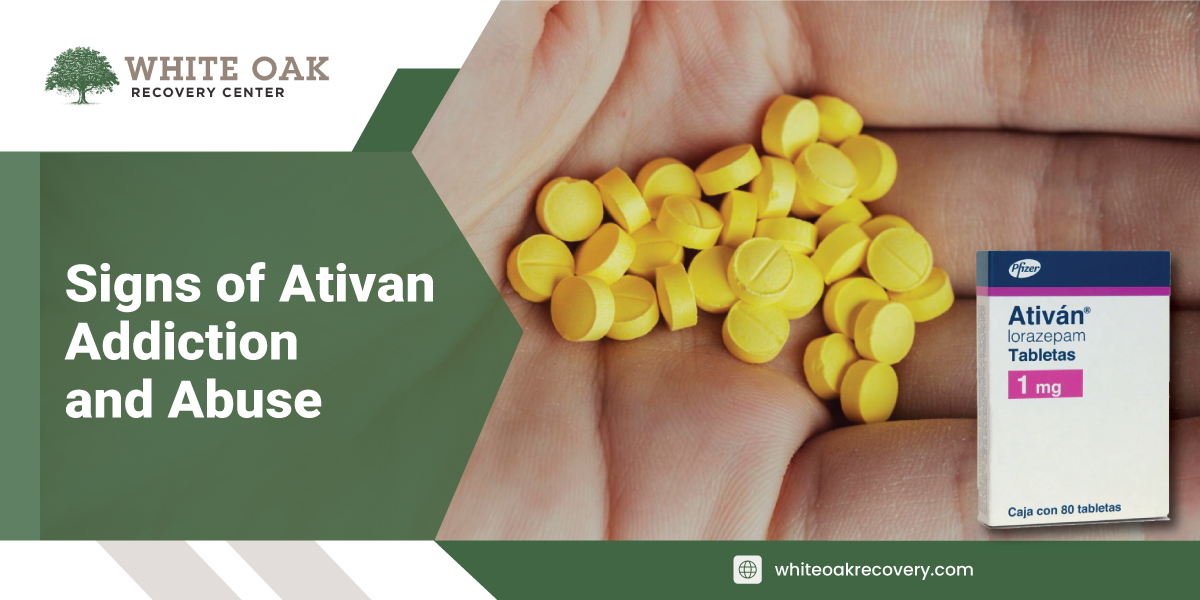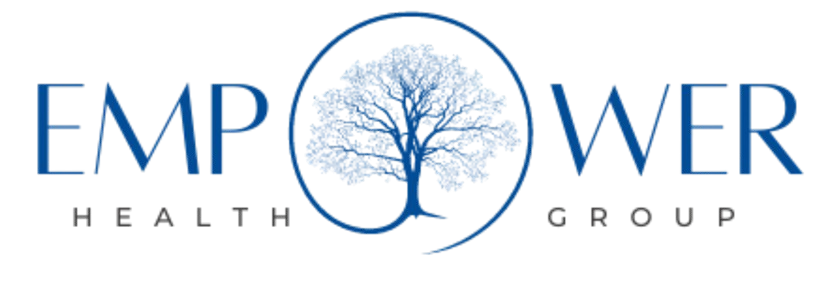Signs of Ativan Addiction and Abuse


Medical Writer:
Reviewer:

Johnny Kim
Executive Psychotherapist
Medical Writer:
Reviewer:

Johnny Kim
Executive Psychotherapist
When Calm Becomes a Crutch
Understanding the Warning Signs, Withdrawal, and Recovery Path for Ativan Dependence
At first, Ativan might feel like a lifesaver. It’s that little pill that takes the edge off your anxiety and helps you breathe again. But somewhere along the line, that “relief” can quietly turn into reliance. If you’ve ever caught yourself wondering, “Is Ativan addictive?” you’re already asking the right question. The truth is, even medications prescribed for genuine anxiety or panic disorders can lead to dependency if not carefully monitored.
At White Oak Recovery Center in Hollywood, California, we understand how blurry the line between use and misuse can become. Our compassionate team helps people recognize the signs of Ativan addiction and find their way back to balance through personalized care, medical detox, and ongoing mental health support. Let’s look closer at how Ativan addiction develops and what to do if you suspect it’s taking hold.
Table of Contents
ToggleWhat Makes Ativan Addictive?
Ativan (the brand name for lorazepam) belongs to the benzodiazepine family. Also known as benzos, these are medications known for their calming effects on the nervous system. They enhance a neurotransmitter called GABA, which slows brain activity and produces that soothing sense of calm so many people seek.
The problem? The brain quickly adapts to this artificially induced calm. Over time, it stops producing as much natural GABA, which leads to tolerance. This means you need more Ativan to feel the same effects. This cycle is how Ativan addiction can sneak up on even those taking it as prescribed.
Some factors that increase the risk of developing an Ativan addiction include:
- Taking higher doses than prescribed.
- Using Ativan for extended periods.
- Mixing it with alcohol or other depressants.
- A personal or family history of addiction or mental health disorders.
Understanding that Ativan addiction isn’t a sign of weakness but a medical condition is crucial. At White Oak Recovery Center, our team helps clients safely and compassionately break the cycle of dependency while addressing the underlying emotional roots that contributed to it.
Recognizing the Symptoms of Ativan Addiction
Ativan addiction doesn’t always show up as a dramatic rock bottom. Often, it starts subtly, such as increased drowsiness, forgetfulness, or irritability that’s easy to dismiss as everyday stress. But these are usually early warning signs that something deeper is going on.
Common symptoms of Ativan addiction may include:
- Taking Ativan more often or in higher doses than prescribed.
- Feeling anxious or irritable when a dose is missed.
- Memory problems or difficulty concentrating.
- Changes in sleep patterns.
- Loss of interest in social or professional responsibilities.
- Needing Ativan to function properly or feel normal.
You might also notice physical signs like slurred speech, unsteady movements, or extreme fatigue. Emotional changes, such as heightened anxiety, depression, or mood swings, can also appear as the brain’s natural balance struggles to recover between doses.
If any of these sound familiar, it might be time to consider whether Ativan addiction is playing a role. Are you wondering, “Is Ativan more addictive than Xanax?” The answer depends on several factors, but both medications carry similar risks for dependency when used long-term or without medical supervision.
The Road Through Withdrawal: What Happens When You Stop
Breaking free from Ativan isn’t as simple as stopping cold turkey. Because benzodiazepines affect the brain’s chemistry, suddenly quitting can trigger uncomfortable and sometimes dangerous withdrawal symptoms.
Ativan addiction withdrawal can include:
- Rebound anxiety or panic attacks.
- Insomnia or restless sleep.
- Sweating and shaking.
- Muscle aches and tension.
- Difficulty focusing.
- Nausea or stomach discomfort.
- In severe cases, seizures or hallucinations.
That’s why a medical detox is often the safest first step toward recovery. At White Oak Recovery Center, our medical team provides 24/7 care and closely monitors your physical and emotional well-being during detox. We use evidence-based methods to reduce discomfort and ensure the process is as safe and manageable as possible.
Once detox is complete, clients transition into tailored treatment plans that address not only the physical aspects of addiction but also the mental health challenges that often accompany it. These can include anxiety, depression, or trauma.
Ativan Addiction Treatment and Reclaiming Your Calm
Healing from Ativan addiction isn’t about giving up control. It’s about gaining it back. At White Oak Recovery Center, we create a treatment plan designed around your unique story, needs, and goals. Our program combines medical expertise with compassionate care to support every aspect of recovery.
A comprehensive Ativan addiction treatment plan may include:
- Medical detox to safely manage withdrawal.
- Individual therapy to explore emotional triggers and develop coping tools.
- Group therapy to build community and connection.
- Dual diagnosis care for co-occurring mental health conditions.
- Holistic therapies like yoga, mindfulness, or art therapy to promote healing beyond medication.
Our experienced admissions team is available to help guide you through every step, from understanding your insurance coverage to designing a program that fits your lifestyle and long-term recovery goals.
At White Oak Recovery Center, we believe that addressing the “why” behind Ativan addiction is just as important as treating the addiction itself. Many people begin using benzodiazepines to manage anxiety, trauma, or stress. True healing means addressing these underlying causes, not just the symptoms.
Finding Help at White Oak Recovery Center
Recovery from Ativan addiction isn’t about judgment or shame. It’s about rediscovering peace of mind and rebuilding a healthy, sustainable sense of calm. Whether you’ve been struggling for years or have only recently noticed the warning signs, help is available.
At White Oak Recovery Center in Hollywood, California, we combine evidence-based medical detox with compassionate, human-centered addiction treatment. Our dedicated team understands that addiction affects not just the body, but also the mind and heart. More importantly, that recovery is possible with the right care and support.
If you or someone you love may be struggling with Ativan addiction, reach out today. Our admissions team can help you take the first step toward healing with understanding, respect, and confidentiality. You don’t have to face withdrawal or recovery alone. We’re here to walk with you every step of the way.

Am I covered for addiction treatment?
Your insurance may cover treatment. Call now for an entirely free and confidential assessment. Recovery starts with a phone call.

- Ghasi, Noman, et al., “Lorazepam.” StatPearls: National Library of Medicine, May 2023.
- “Lorazepam.” National Institute of Diabetes and Digestive and Kidney Diseases, Jun. 2023.
- Mathew, Sanjay J., et al., “Characterization of Extended-Release Lorazepam.” J Clin Psychopharmacol., Aug. 2023.
- “Lorazepam.” MedlinePlus: National Library of Medicine, Feb. 2023.
- “Benzodiazepines.” Drug Enforcement Administration, Oct. 2022.
Medical Disclaimer:







